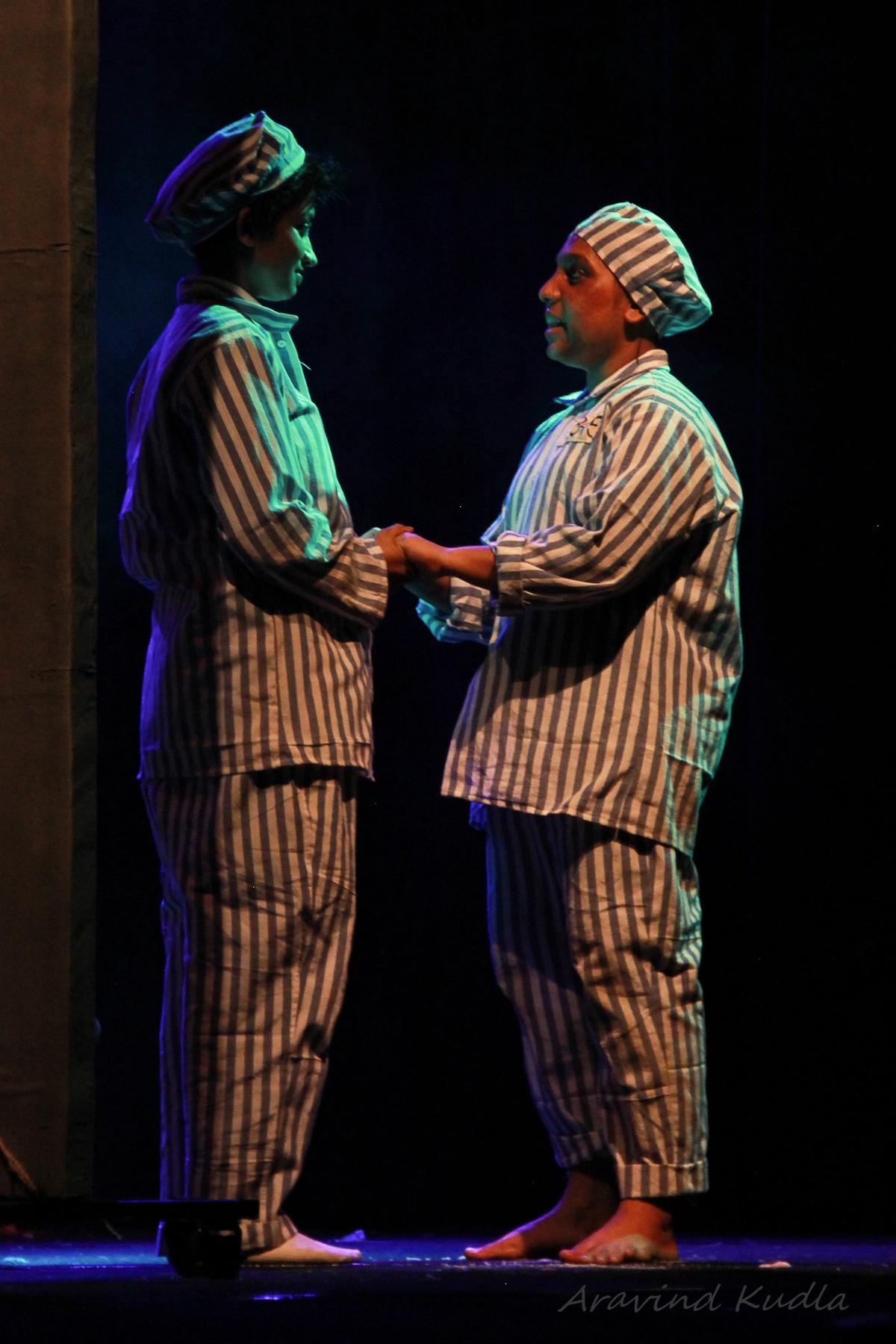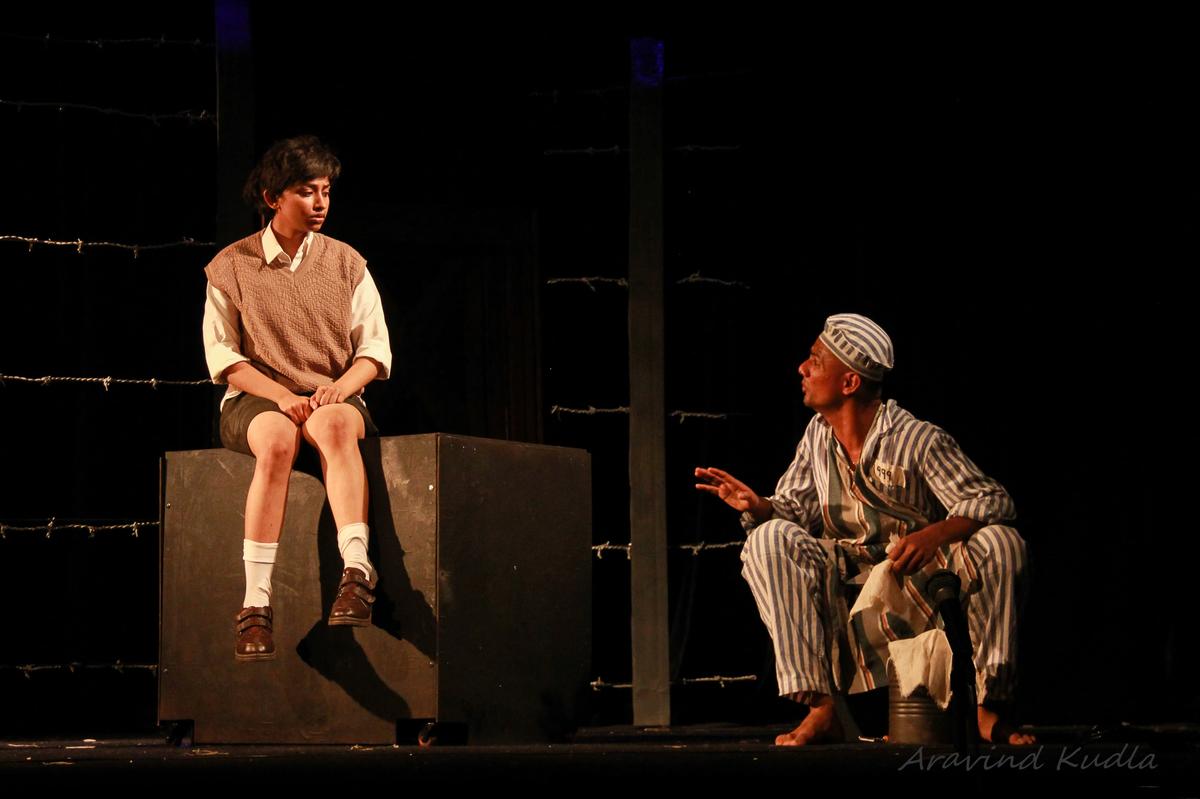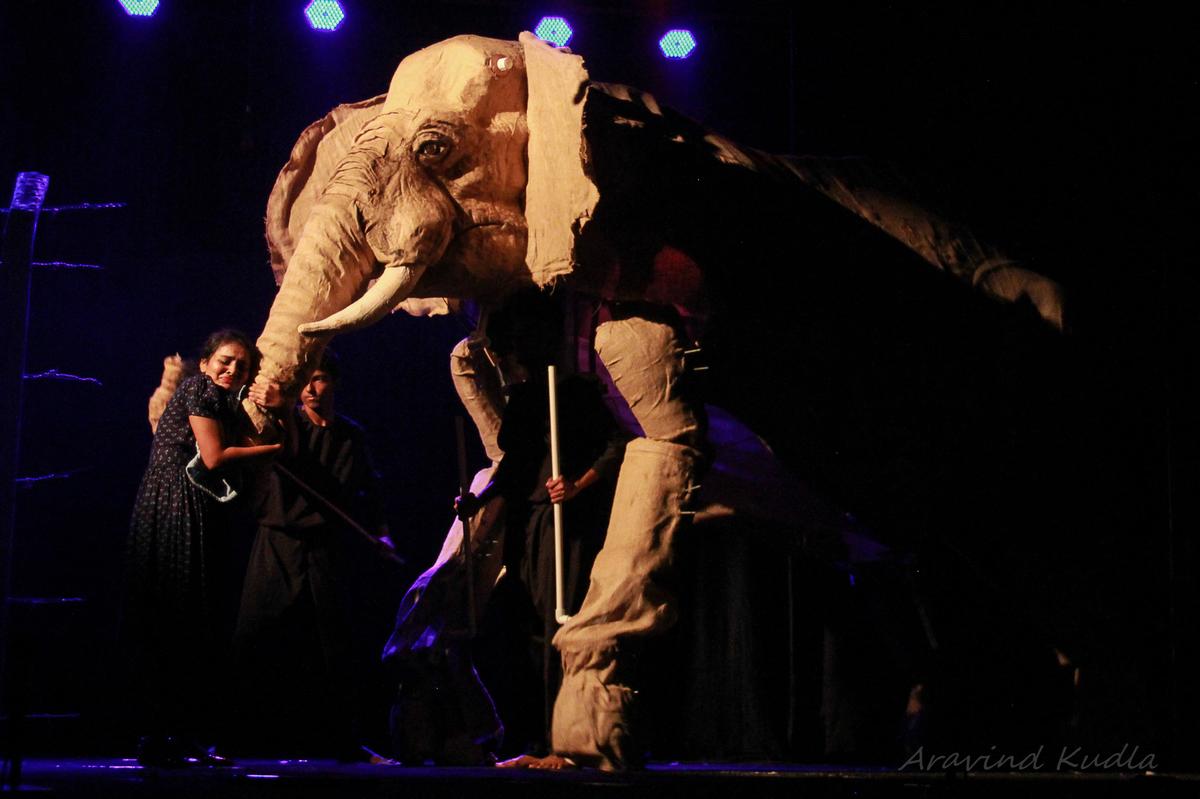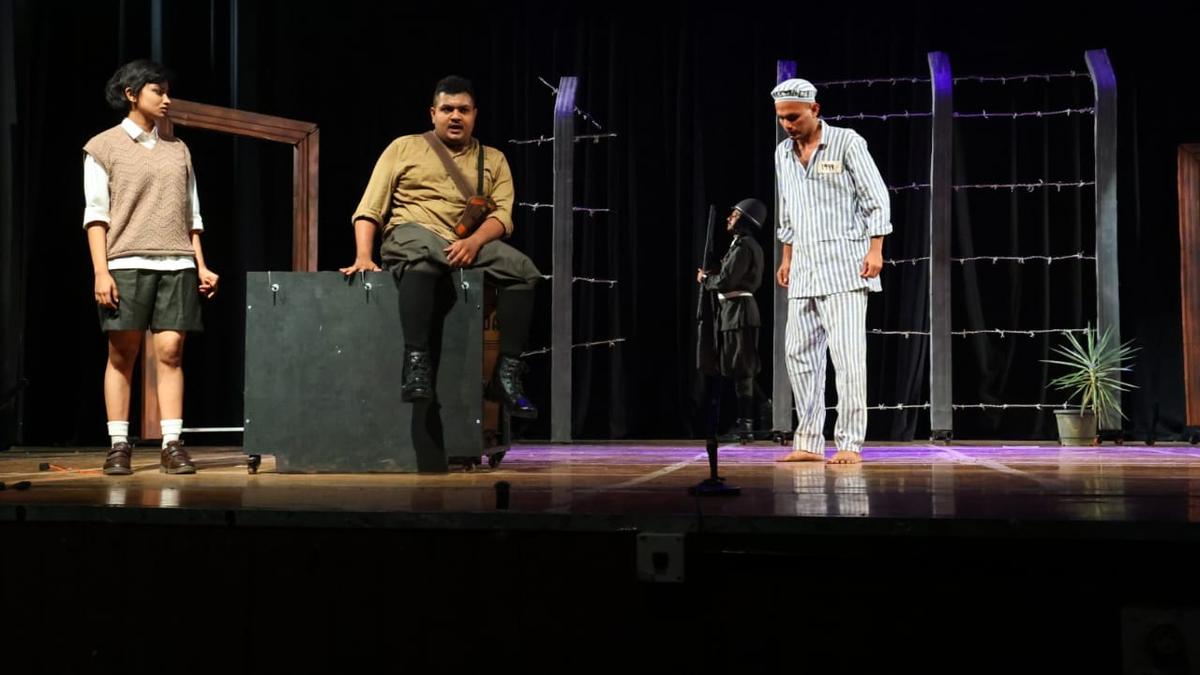The play revolves around a man who forgets the true nature of his family and enters a deep friendship, resulting in gross injustice to them.
| Photo Credit: SPECIAL ARRANGEMENTS
In recent years, the age-old art of puppetry has experienced a vibrant resurgence in Kannada theatre, with its unique blend of tradition and innovation. Puppetry, once a fading cultural practice, is now witnessing a renaissance as contemporary artists and theatre enthusiasts rediscover its potential to convey powerful narratives and evoke deep emotions.
One such play that has recently won the hearts of audiences across Karnataka is Kalabhi Theatre and Nirdiganta’s A Friend Beyond the Fence, to be showcased in Ranga Shankara, J.P. Nagar on July 28.
Directed by Shravan Heggodu, the Kannada play is based on the life of eight-year-old Alex, the son of a self-appointed Nazi officer, and Ethan, a Jewish boy of the same age, and Timbo, a baby elephant, separated by a barbed wire fence in a concentration camp in Poland. The play revolves around a man who forgets the true nature of his family and enters a deep friendship, resulting in gross injustice to them. The play is an inspired expansion of many fictional and real stories surrounding World War II and attempts to portray the massacre of lives by the Nazi regime in Germany from the perspective of the minds of two innocent boys.

Scenes from the play A Friend Beyond the Fence.
| Photo Credit:
SPECIAL ARRANGEMENTS
Inspired by various works, Shravan says he decided to write and direct the play to share the thoughts of what a child went through during the Nazi regime in Germany. “The play is inspired by the novel The Boy in the Striped Pyjamas by John Boyne and many other novels on the Nazi occupation. I took inspiration from many such novels, and wrote the script in Kannada, because there are several stories and plays on the Nazi regime, but very few of what a child went through during the time. This play brings out the thoughts and conversations between children, how they build friendships even in a camp site and more.”

A scene from the play A Friend Beyond the Fence.
| Photo Credit:
SPECIAL ARRANGEMENTS
Japan’s traditional puppets
What makes the play stand out is the use of a life size elephant puppet on stage along with many other puppets. All the puppets in the play are operated using the Bunraku puppetry technique, a traditional form of Japanese puppetry, which is known for its excellence in craftsmanship and manipulation techniques with three artists operating a puppet. Bringing puppets to life directly with hand movements, creating a sense of realism on stage, the puppets in this play, born from the influence of Bunraku artistry, are crafted to fit the narrative and are presented in a contemporary style.
Shravan says that training the actors to learn the Bunraku art form was a challenge initially, but they picked up the technique easily, “As a director who makes puppet-based plays, it is hard for me to find actors who are also puppeteers. The actors who worked with me worked day and night initially and it was a challenge, however, they learned the techniques of Bunraku puppetry well. As a director I also had to keep in mind that the elephant was not the only centre of attention; this play also has actors who play the characters and not just operate the puppets, so I had to make sure that the play was a nice amalgamation of puppetry and acting.

A life-size elephant puppet was used for the play.
| Photo Credit:
SPECIAL ARRANGEMENTS
Not enough sources for Indian puppeteers
The director says that making the life-size elephant was a challenge due to the lack of resources in the country. “Puppetry is more popular and an easier art form abroad. Puppeteers abroad have sources or vendors that specifically make materials and tools for them, based on the type of puppets. However, in India, or in Karnataka there is a lack of sources or sellers who make materials and products. We are forced to procure materials from stationery shops, sofa makers or use the same materials used by theatre set makers”.
“While making the life size elephant, I had a challenge procuring the right material, which would be light on the actors, but also easy to operate”, he adds.
Performed by Bhuvan Manipal, Shreesha, Sowmya Bhagawat, and Ujwal U.V, with shows at 3.30 p.m. and 7.30 p.m., tickets for A Friend Beyond the Fence are available at the Ranga Shankara box-office and on BookMyShow.
